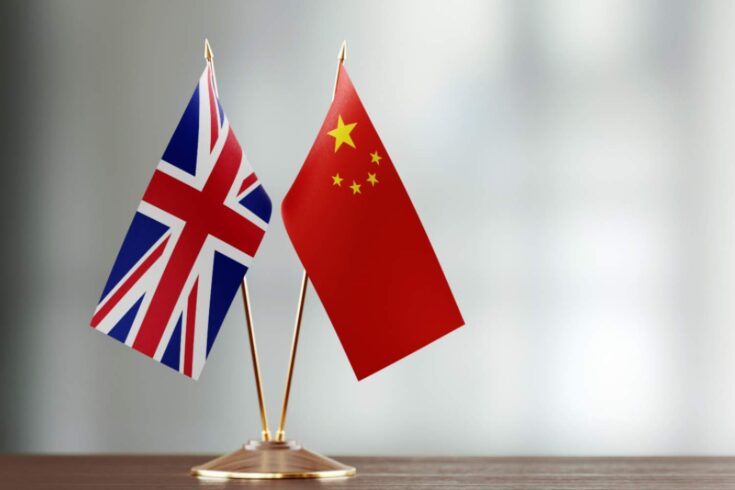World leaders in industrial decarbonisation
Some of the world’s most impressive industrial decarbonisation projects are being delivered in UK industrial clusters. UK Research and Innovation’s Industrial Decarbonisation Challenge programme is supporting nine major infrastructure projects. This will enable the at-scale rollout of carbon capture and storage (CCS) and hydrogen networks in the mid-2020s.
The UK will create the world’s first net zero industrial clusters by 2040, utilising our significant available offshore CO2 storage capacity. This significant asset in combination with our projects in advanced stages of development will enable the UK to become a world leader in industrial decarbonisation technologies.
China is the world’s largest single emitter of CO2 and was responsible for 28% of global CO2 emissions in 2020. Importantly, President Xi has set a binding target to achieve net zero by 2060. Major industrial decarbonisation initiatives in China, specifically CCS and low carbon hydrogen present significant market growth opportunities.
Also, it will be important for the UK and China to work closely together to share knowledge and promote collaboration as the global market develops at pace this decade.
Moreover, this year marks the 50th anniversary of UK-China diplomatic ambassadorial relations. Industrial decarbonisation presents a major area in common for both countries and productive dialogue will strengthen those relations and present important opportunities to work together.
The global expert mission
This year, the Industrial Decarbonisation Challenge in combination with the Knowledge Transfer Network and British embassy in Beijing facilitated a high-profile global expert mission between the UK and China.
A delegation of 50 distinguished industry leaders and academics assembled for a week of bilateral discussions around three critical areas to achieve national success:
- industrial clusters
- hydrogen
- CCS.
The week began with Industrial Strategy Challenge Fund Director, Dr Bryony Livesey, welcoming delegations alongside Dr Huang Jing from the Chinese government. Dr Huang Jing is the Director General of Administrative Centre for China’s Agenda 21, Ministry of Science and Technology (MOST).
Both speakers introduced the industrial decarbonisation landscapes within respective nations and sent a strong message for collaboration and knowledge exchange over the mission. Throughout the week both the UK and China laid out common goals and objectives as both countries seek to decarbonise their industry. This comes at a particularly important time in response to the Paris Agreement commitments in the wake of the United Nations Climate Change Conference.
Bilateral discussion
Important discussions focused on wide-ranging opportunities within the UK’s industrial clusters:
- Humber
- North-west
- Black Country
- Scotland
- Teesside
- South Wales.
Likewise, the Chinese delegation presented the Guangdong industrial cluster as well as a route to establishing industrial clusters in China. An important update on the 14th five-year plan of China and its provinces was presented in line with Chinese government policy as well as discussion on UK’s industrial decarbonisation strategy.
Key updates were provided by:
- China Hydrogen Alliance
- China Energy Investment Corporation
- officials from MOST within the Chinese Government.
Looking ahead
The success of this expert mission was to establish a network of connections between UK and Chinese businesses to promote collaboration and to identify and showcase key future market opportunities.
The delegation will meet in person in China to progress the dialogue and is expected to convene at the Chinese embassy in London this summer to formalise some of the key areas for collaboration.
The Industrial Decarbonisation Challenge is delivered by Innovate UK.
Top image: Credit: MicroStockHub, iStock, Getty Images Plus, Getty Images



